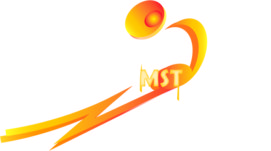If you want to know how popular the term “Mindfulness” has become, just Google it like I just did – Google returned 302 million hits! Searching for “Mindfulness in Sport” pares it down to a staggering 42 million! That is a lot of information to weed through! With so much information out there, it is difficult to get agreement on what exactly mindfulness is!
For our purposes, let’s go with a simple definition. Mindfulness just means being present, both in mind and body, in the current moment without having one foot still in the past, or one foot in the future. In the extreme case, worrying about what has already happened can be defined as depression while agonizing over what could happen in the future is the root of anxiety. We don’t want either of those when we are trying to perform our best in the present!
Humans are notoriously bad at multi-tasking. Our brains like to work on one thing at a time. If the brain is asked to perform on a current task while still being occupied with something in the past or in the future, focus will suffer! It is just not possible to split attention productively in that fashion.
What does this mean for the recreational athlete? It is best if you can keep your attention on the current task in the current moment. Simple right? But not easy! How can you do this? One way is to try not to focus on your score during a competition. Worrying about the score tends to keep one anchored firmly to what has happened already, and what needs to happen in the future rather than focusing on the process of what needs to be done in the present. A good friend and fellow shooter, Doug Parsons, likes to say “what happened in the past is history, what happens in the future is a mystery”!

Adopting that attitude of attacking one target at a time – and the one in front of you at the current moment, tends to yield the best results! When you leave a station, and head to the next one, do your best to leave the result (whether it was good or bad) behind you as well.
What happens if you find your attention drifting from the present to the past or the future? You can always use the “reset button” we discussed in an earlier post to help bring you back to the present. It is amazing how effective taking a few deep breathes can provide a reset to the brain and get your focus and attention where they need to be.
If you want to work on strengthening your ability to retain concentration and focus, there are a few mindfulness techniques that can help. Try some of these:
- Go for a mindfulness walk. Walking is great exercise and a great way to clear the mind. With a few small modifications, it can also help to practice mindfulness. Pick a sense that you want to emphasize on a given walk. Then really focus on that sense. Let’s say you decide to pick hearing / sound. As you walk, be aware and catalog all of the sounds you hear around you – a dog barking, cars in the distance, a plane overhead, the sound of your feet hitting the sidewalk, your own breathing. How long can you do this without engaging any intruding thoughts? If you do experience an “intruder”, try to gently bring your attention back to what you can hear around you. Doing so helps to strengthen your ability to focus and concentrate.
- Practice progressive relaxation. Lots of athletes seem to enjoy this practice. I like doing this one as a good cure to insomnia as well as it tends to relax me to the point of falling asleep! Start with the muscles in your toes, and contract and release them. Move up the body doing the same with all the muscles until you get to your forehead! See how well you can stay focused on the activity without engaging with outside thoughts. Again, if you do have an “intruder”, just try to gently bring your focus back to your own muscles. This can be done any time in any place – even during a competition to help re-center you in the present. Just do an abbreviated version and see if that helps you.
- Try meditation. Up until recently, I was cautiously curious about the use of mediation. After some reading and research, I recently started my own mediation “experiment”. I will be posting more about this technique soon.
Hopefully, this short post has helped to dispel any of the mystery surrounding the concept of mindfulness. How do you incorporate mindfulness in your sport?
